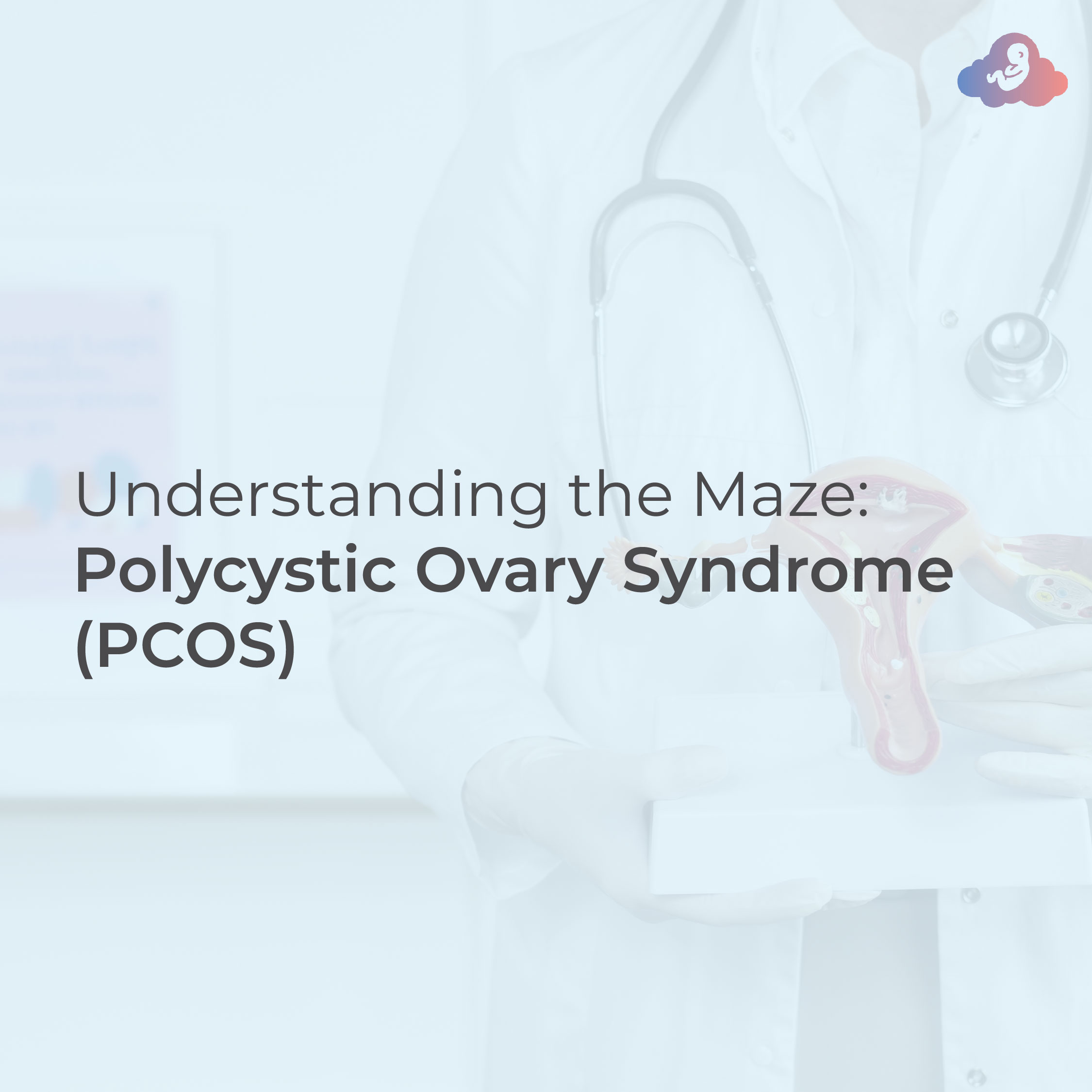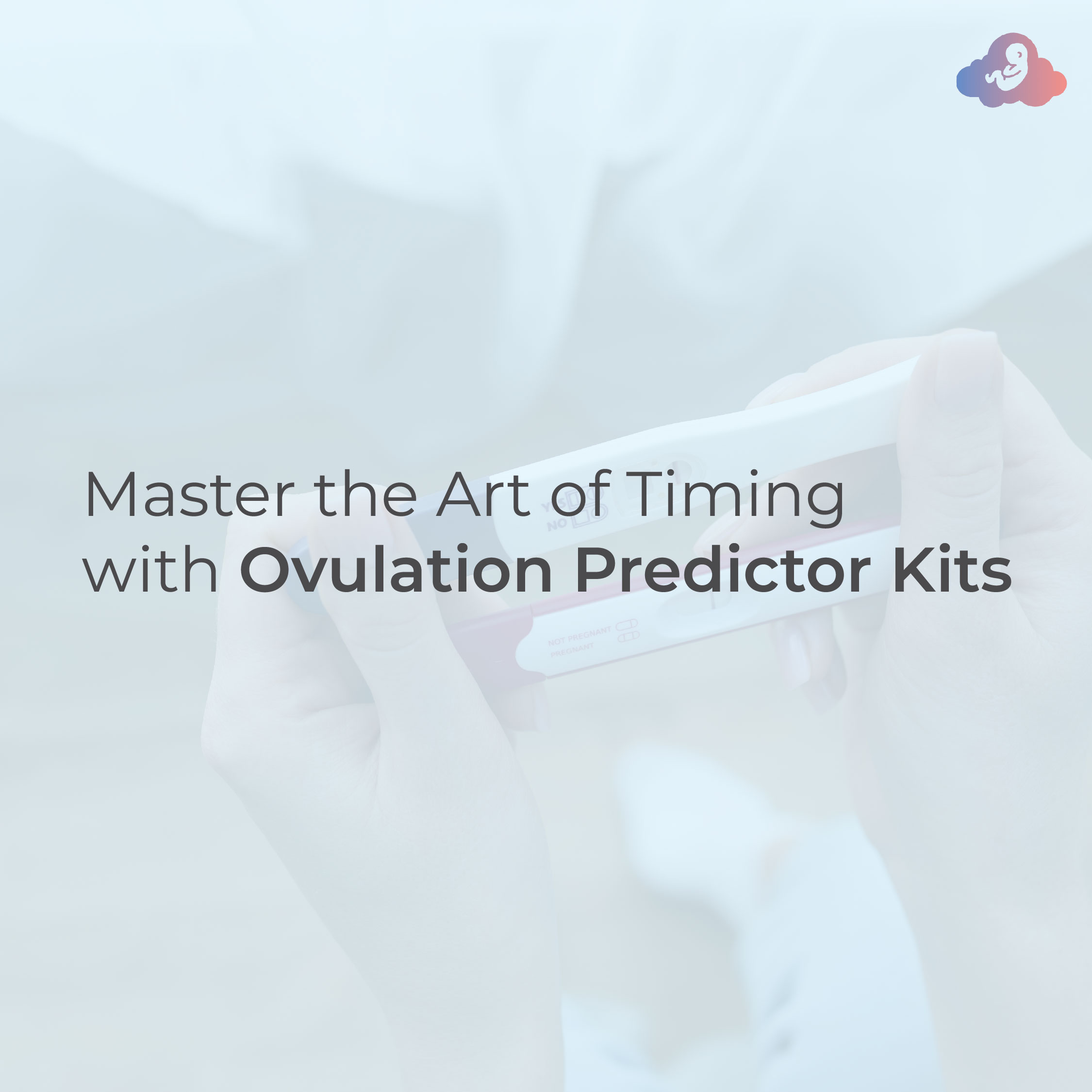So What is Polycystic Ovary Syndrome?
Ever felt like you’re on a roller coaster ride without buying a ticket? That’s the puzzling world of PCOS for you – a bewildering journey full of ups and downs. For those grappling with Polycystic Ovary Syndrome (PCOS), life can sometimes feel like a maze. But don’t fret, because by the end of this article, we aim to help you navigate through the twists and turns of this complex condition.

The Silent Intruder – PCOS
What’s in a Name? The Nitty-Gritty of PCOS
PCOS stands for Polycystic Ovary Syndrome. This mouthful of a name can be broken down into simpler terms: “Poly” means many, “Cystic” relates to cysts, and “Ovary Syndrome” indicates that it involves the ovaries. In a nutshell, it’s a hormonal disorder common among women of reproductive age, characterized by numerous small cysts in the ovaries.
Symptoms: More Than Meets the Eye
PCOS is a crafty culprit, often sneaking in unnoticed. Its symptoms can be diverse and often resemble other conditions, making it quite the chameleon. Common signs include irregular periods, excess androgen levels (leading to unwanted hair growth or acne), and polycystic ovaries.
What Causes PCOS?
The Hormonal Havoc
While the exact cause of PCOS remains a mystery, several factors play a role, and hormones are the ringleaders of this circus. Insulin resistance, increased levels of androgens, and inflammation are often involved in triggering PCOS.
Genetics: The Family Ties
“Like mother, like daughter” can ring eerily true for PCOS. Studies suggest that PCOS can be passed down from one generation to the next, highlighting the role of genetics in this condition.
The Effects of PCOS
Beyond the Physical: The Emotional Toll of PCOS
PCOS isn’t just a physical condition—it can take a toll on emotional health as well. Dealing with the symptoms can lead to anxiety, depression, and low self-esteem.
PCOS and Fertility: The Rough Road Ahead
PCOS can be a speed bump on the road to motherhood. Women with this condition can struggle with fertility due to irregular or absent ovulation.
Decoding PCOS: Myths and Facts
While PCOS is common, many myths and misconceptions surround it. Let’s bust some of them:
- Myth: You can’t get pregnant if you have PCOS.
- Fact: While PCOS can complicate conception, it’s not impossible. Many women with PCOS have successful pregnancies with the help of fertility treatments and lifestyle changes.
- Fact: While PCOS can complicate conception, it’s not impossible. Many women with PCOS have successful pregnancies with the help of fertility treatments and lifestyle changes.
- Myth: PCOS only affects overweight women.
- Fact: PCOS can affect women of all body types. While being overweight can exacerbate the symptoms, thin women can also have PCOS.
- Fact: PCOS can affect women of all body types. While being overweight can exacerbate the symptoms, thin women can also have PCOS.
- Myth: PCOS symptoms will disappear after menopause.
- Fact: While symptoms may lessen after menopause, PCOS can still have long-term effects such as heart disease and diabetes.
Living with PCOS: Management and Treatment
Lifestyle Changes: Every Little Bit Helps
Contrary to popular belief, you don’t need to move mountains to manage PCOS. Sometimes, it’s the small changes that can make a world of difference. A balanced diet, regular exercise, and adequate sleep can go a long way in managing symptoms.
Medical Treatments: The Doctors Are In
If lifestyle changes aren’t enough to tame the beast that is PCOS, medical treatments can step in. Birth control pills, anti-androgen medicines, and medications for increasing insulin sensitivity are commonly used in PCOS management.
Dealing with PCOS: Tips and Tricks
Building a Support Network: You’re Not Alone
Coping with PCOS can sometimes feel like you’re lost at sea, but remember, you’re not alone. Reach out to friends, family, or join a support group. A listening ear can make all the difference.
Body Positive Attitude: Embrace Yourself
PCOS can affect your body image, but remember, you are more than your physical appearance. Embrace yourself as you are. Celebrate your strengths, not your weaknesses.
Future Research: Hope on the Horizon
New Therapies and Treatments
Scientists are burning the midnight oil to find new treatments for PCOS. From gene therapy to stem cell research, there are many promising avenues of research that could lead to breakthroughs.
Personalized Medicine: Tailoring Treatment
One size does not fit all, especially in medicine. Researchers are exploring the use of personalized medicine in managing PCOS, focusing on treatments designed to fit individual genetic makeups.
FAQs about Polycystic Ovary Syndrome (PCOS)
1. What is the primary cause of Polycystic Ovary Syndrome (PCOS)?
The exact cause of PCOS is unknown, but it often involves a combination of genetic and environmental factors, including high levels of androgens and insulin resistance.
2. Can PCOS be cured?
There’s no cure for PCOS, but its symptoms can be managed with lifestyle changes and medical treatments.
3. Can a woman with PCOS get pregnant?
Yes, a woman with PCOS can get pregnant. Though PCOS can complicate conception, many women with PCOS have successful pregnancies with the help of fertility treatments and lifestyle changes.
4. Is PCOS a serious health condition?
Yes, if not managed, PCOS can lead to several health risks like diabetes, heart disease, endometrial cancer, and severe liver inflammation.
5. Can you prevent PCOS?
Since PCOS is linked to genetics and hormonal imbalances, you can’t prevent it. However, maintaining a healthy lifestyle can help manage the symptoms and prevent complications.
6. Are there natural remedies for PCOS?
Natural remedies like a balanced diet, regular exercise, and adequate sleep can help manage the symptoms of PCOS.
Conclusion: The Road Ahead
There’s no sugarcoating it—living with PCOS can be challenging. But remember, it’s not a journey you have to undertake alone. Reach out, connect, and know that help is at hand. PCOS is a part of you, but it does not define you. It’s just one piece of the jigsaw puzzle that is you.
Hold your head high, walk with pride, and remember: every cloud has a silver lining. With the right knowledge, support, and tools, you can navigate the maze of PCOS and come out the other side, stronger and wiser.
To speak with our fertility specialist from the convenience of your home








